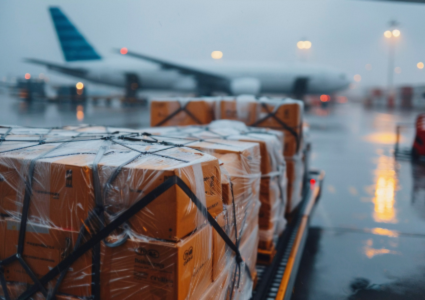
Introduction: Customs Delays Are Costing You Money
In 2025, cross-border trade in the Gulf region is growing rapidly—but so are customs complications. From misfiled paperwork to certification issues, delays at borders like Jebel Ali (UAE), King Abdulaziz Port (KSA), and Hamad Port (Qatar) are causing significant losses in time and revenue.
If you’re shipping goods into the GCC, this expert guide explains exactly how to ensure fast, compliant customs clearance—without setbacks, holds, or penalties.
Why Shipments Get Delayed at GCC Customs
Most Common Reasons for Clearance Delays
- Incomplete or inaccurate documentation
- Improper HS code classification
- Missing SASO, SFDA, or Halal certificates
- Non-compliant product labeling (especially in Arabic)
- Late registration with authorities like SABER or SFDA
- Lack of importer registration in local ports (Dubai Trade, ZATCA)
Fact: Over 40% of customs delays in the GCC are due to HS code mismatches and misdeclared values.
Required Documents for Smooth Customs Clearance in the GCC (2025)
Standard Import Documentation
- Commercial Invoice (matching shipment value)
- Packing List
- Bill of Lading (or Air Waybill)
- Certificate of Origin (Chamber-stamped)
- Harmonized System (HS) Code declaration
- Importer Registration (e.g., Dubai Trade, ZATCA)
Additional Regulatory Documents (by Commodity)
- SASO Certificate – mandatory for KSA consumer goods
- SFDA Registration – for food, pharma, medical devices (KSA)
- Halal Certificate – required for food, cosmetics in UAE and KSA
- CE/EUR.1/ATR – if exporting from Europe or Turkey
Best Practice: Use pre-verified templates for COO and invoice formats accepted by GCC customs authorities.
Country-Specific Customs Procedures in the GCC
UAE (Dubai, Abu Dhabi, Jebel Ali)
- Register importers via Dubai Trade Portal
- Enable Mirsal 2 clearance system
- Electronic declaration forms mandatory
- Value must match e-invoice and packing list exactly
- Bonded warehousing options available for deferred clearance
Saudi Arabia (ZATCA, SABER, SFDA)
- Mandatory SABER registration for regulated products
- SASO Product Certificate required before loading
- SFDA approval for food, pharma, supplements
- Shipment value and origin must match SABER declaration
Qatar, Bahrain, Oman
- COO must reference specific tariff headings
- Pre-arrival document submission required
- Arabic label accuracy is strictly enforced
- Delays often arise due to third-country transshipments
7 Expert Ways to Prevent Customs Delays in the GCC
- Classify Products Using Correct HS Codes (WCO Standard)
- Misclassification leads to rejections or fines. Always use local tariff databases.
- Misclassification leads to rejections or fines. Always use local tariff databases.
- Ensure Dual-Language Labeling on Products and Cartons
- Arabic + English labeling is mandatory for all consumer-facing goods.
- Arabic + English labeling is mandatory for all consumer-facing goods.
- Use Pre-Clearance Systems (Mirsal 2, SABER, SFDA)
- Register and submit documents before goods arrive.
- Register and submit documents before goods arrive.
- Submit Digital Copies Early with Matching Data
- Any discrepancy between invoice, BL, and packing list will trigger inspection.
- Any discrepancy between invoice, BL, and packing list will trigger inspection.
- Work With a Regional Customs Broker or 3PL
- Partnering with a logistics provider familiar with local customs systems can speed up clearance.
- Partnering with a logistics provider familiar with local customs systems can speed up clearance.
- Avoid Dynamic Pricing or Inconsistent Invoice Values
- Customs authorities will compare market prices against declared values.
- Customs authorities will compare market prices against declared values.
- Plan for Certificate Lead Times
- SASO/SFDA approvals can take 5–14 days if not handled proactively.
- SASO/SFDA approvals can take 5–14 days if not handled proactively.
What to Do if Your Shipment Is Delayed at GCC Customs
- Request temporary release under bond (where permitted)
- Contact customs officer via the designated online platform (Dubai Trade, ZATCA, etc.)
- Expedite missing documents through your Chamber of Commerce
- Store goods in bonded warehouses while resolving documentation
How Syrmex Helps You Avoid Costly Customs Delays
At Syrmex, we specialize in end-to-end customs clearance and trade compliance services across the GCC. Our multilingual team handles:
- Real-time document submission to Mirsal 2, SABER, SFDA
- Direct coordination with customs inspectors and port authorities
- Verification of HS code accuracy and shipment value
- Rapid issuance of SASO, Halal, CE, and COO certificates
- 24/7 shipment status monitoring and customs escalation support
Explore our Customs Clearance Services for full coverage in UAE, Saudi Arabia, Qatar, and Turkey.
Conclusion: Proactive Customs Compliance Is Your Competitive Advantage
In 2025, the businesses that dominate regional logistics will be those that master customs efficiency. Whether you’re moving electronics, industrial goods, or FMCG products, avoiding delays requires both technical expertise and proactive compliance.





